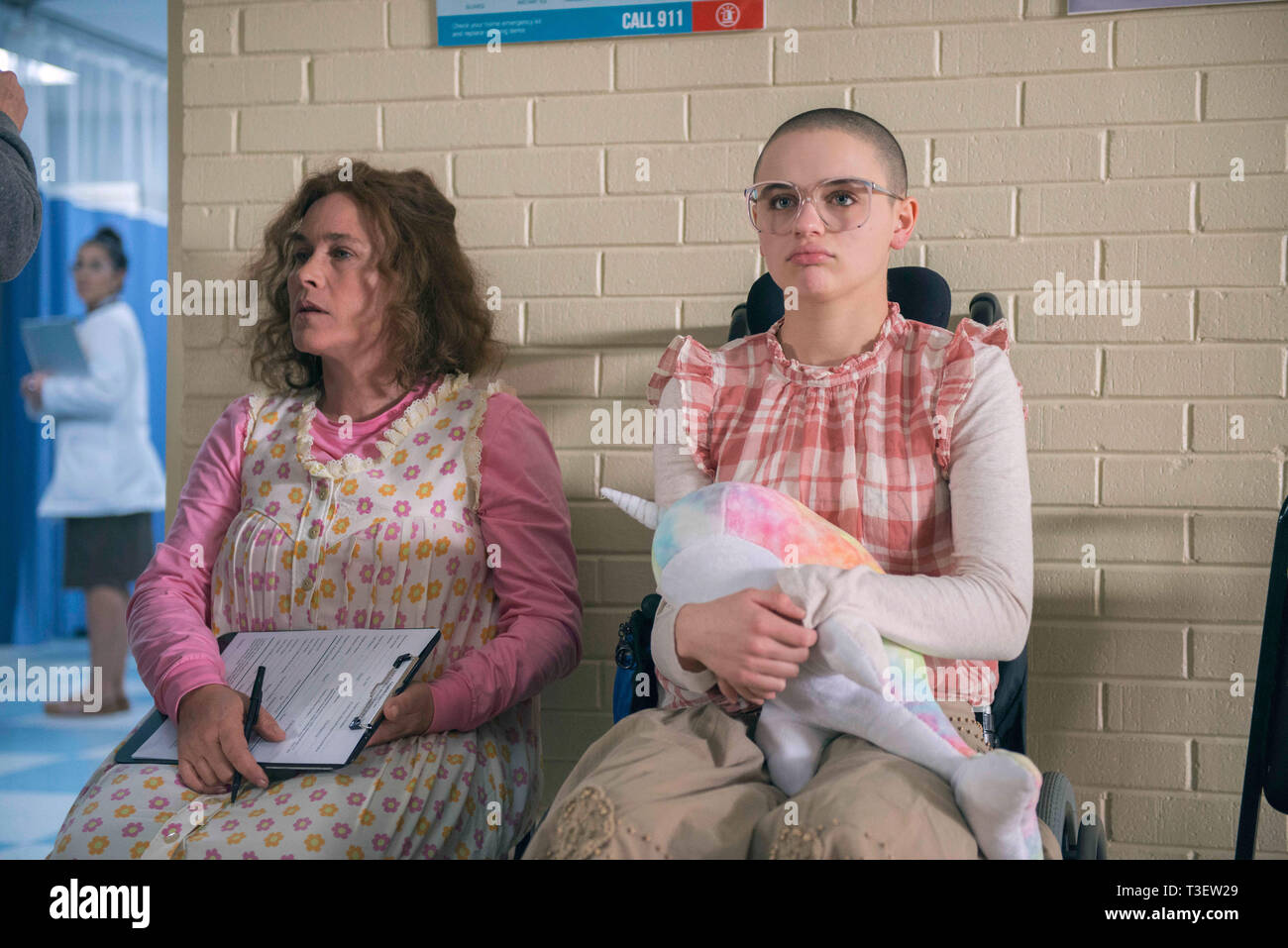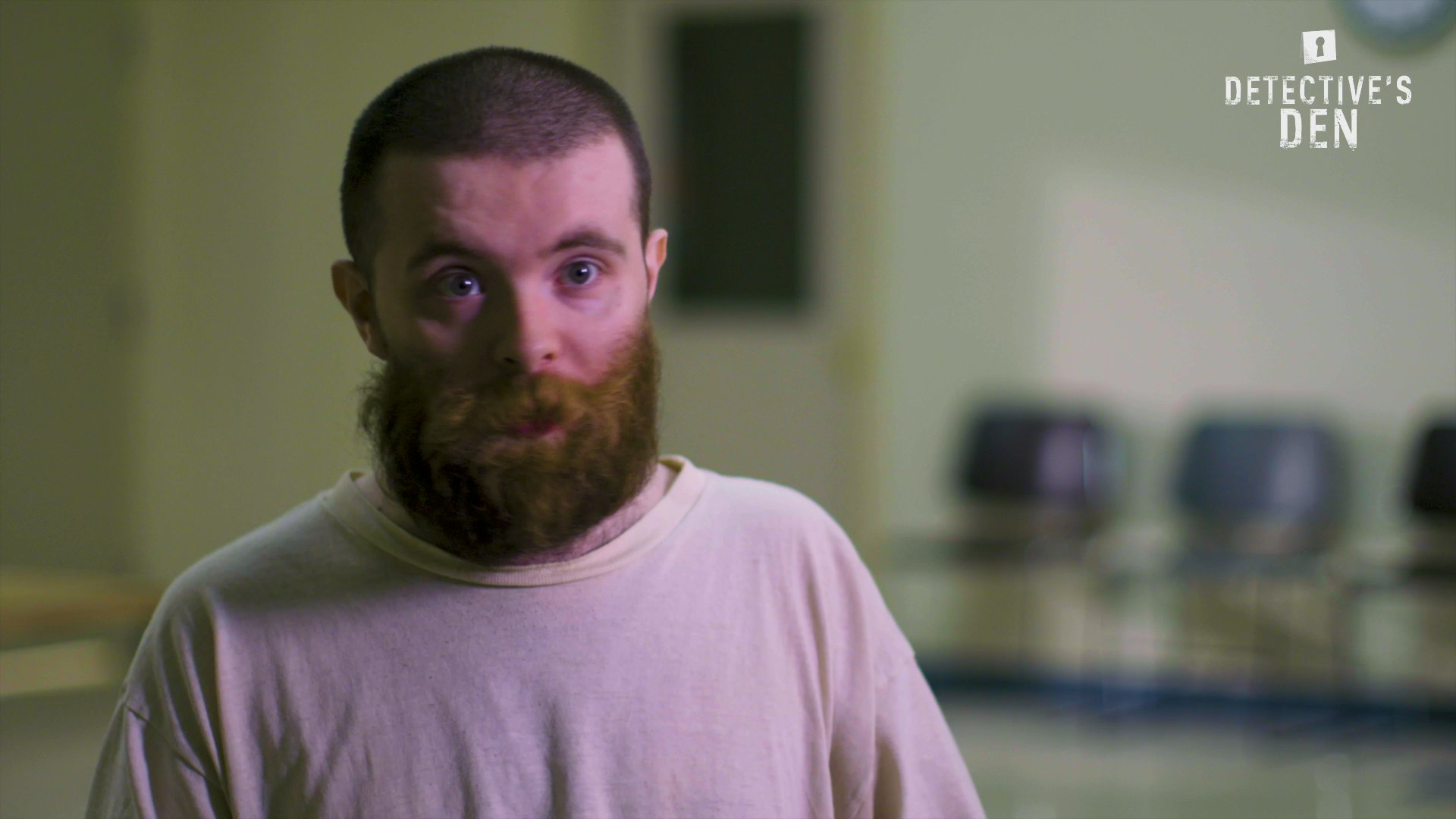Dee Dee Blanchard is a name that became synonymous with deception and tragedy in the early 2010s. Her story shocked the world, revealing a dark side of parental manipulation and control. Imagine living a life where every moment is dictated by someone else's whims, all under the guise of love and care. That's exactly what happened in this chilling real-life drama. Prepare to dive deep into one of the most disturbing cases of our time.
Dee Dee Blanchard wasn't just any mom. She was a figure who manipulated not only her daughter but also the entire medical system. Her actions led to a series of events that ultimately ended in her own death and left the world questioning the boundaries of parental authority. This story isn't just about one family; it's about trust, manipulation, and the lengths some people will go to maintain control.
As we unravel the layers of Dee Dee's life, we'll explore the impact her actions had on her daughter, Gypsy Rose, and the broader community. It's a tale that has been the subject of documentaries, books, and even a hit TV series. But beyond the headlines and dramatizations lies a complex web of truths and lies that we'll dissect here today.
Read also:How Old Is Marie Osmond Discover The Queen Of Variety Shows And Her Remarkable Journey
Biography: Who Was Dee Dee Blanchard?
Early Life and Background
Before we dive into the darker chapters of Dee Dee Blanchard's life, let's take a step back and explore her early years. Born on December 31, 1966, in Springfield, Missouri, Dee Dee grew up in a seemingly ordinary family. However, her childhood wasn't without its challenges. She faced struggles that would later shape her worldview and parenting style.
Dee Dee's family life was marked by instability. Her parents divorced when she was young, and she bounced between households, never quite finding a sense of belonging. This lack of stability may have contributed to her need for control later in life. As she entered adulthood, Dee Dee married Charles Blanchard, and together they had two daughters: Michelle and Gypsy Rose.
Here's a quick overview of her personal details:
| Full Name | Dee Dee Marie Thompson Blanchard |
|---|---|
| Birthdate | December 31, 1966 |
| Place of Birth | Springfield, Missouri, USA |
| Spouse | Charles Blanchard (divorced) |
| Children | Michelle Blanchard and Gypsy Rose Blanchard |
| Date of Death | June 10, 2015 |
Dee Dee Blanchard's Manipulative Behavior
Creating a False Illness
One of the most shocking aspects of Dee Dee's story is how she fabricated her daughter Gypsy Rose's medical condition. For years, Dee Dee convinced doctors, family, and friends that Gypsy was severely ill with a rare disease. This wasn't just a harmless lie; it was a calculated move to maintain control over her daughter's life.
Dee Dee went to extreme lengths to perpetuate this deception. She forged medical records, staged symptoms, and even injected Gypsy with unnecessary medications. Her actions weren't just harmful to Gypsy's physical health; they also had a devastating impact on her mental well-being. Gypsy was kept isolated from the world, prevented from living a normal life.
But why did Dee Dee do it? Experts suggest that her behavior stemmed from a psychological condition known as Munchausen syndrome by proxy (MSBP). This rare disorder involves a caregiver fabricating or inducing illness in someone under their care. In Dee Dee's case, her need for attention and control drove her to extreme measures.
Read also:Mariah Carey Birthday Celebrating The Queen Of Christmas And Her Iconic Life
Gypsy Rose: The Victim of Dee Dee's Manipulation
Gypsy's Life Under Dee Dee's Control
Gypsy Rose Blanchard grew up in a world dictated by her mother's whims. From a young age, she was confined to a wheelchair, fed through a tube, and isolated from the outside world. Dee Dee portrayed Gypsy as a helpless child, incapable of living independently. But the truth was far different.
Gypsy was intelligent, resourceful, and desperate for freedom. Despite the restrictions placed on her, she found ways to communicate with the outside world. Through social media and online interactions, Gypsy discovered a sense of independence she'd never known before. This newfound freedom would eventually lead to a dramatic turn of events.
Here are some key facts about Gypsy's life under Dee Dee's control:
- Gypsy was homeschooled and rarely left the house
- She was subjected to unnecessary medical procedures
- Her mother controlled every aspect of her life, including her friendships and hobbies
The Tragic End: Dee Dee Blanchard's Death
The Murder That Shocked the Nation
The story of Dee Dee Blanchard reached its tragic climax on June 10, 2015. That night, Gypsy Rose, along with her boyfriend Nicholas Godejohn, allegedly orchestrated a plan to end her mother's life. The motive was clear: freedom. For years, Gypsy had lived under her mother's oppressive control, and she saw no other way out.
The murder sent shockwaves through the community and the nation. How could a daughter take such drastic measures against her own mother? As the details emerged, it became clear that this wasn't just a case of filial betrayal. It was the culmination of years of manipulation, abuse, and psychological torment.
The trial that followed shed light on the complexities of the situation. Gypsy and Nicholas were both found guilty of first-degree murder, but their actions were seen by many as a desperate attempt to escape a life of confinement and deceit.
Psychological Insights: Understanding Dee Dee's Mindset
Exploring Munchausen Syndrome by Proxy
To truly understand Dee Dee Blanchard's actions, we need to delve into the psychology behind her behavior. Munchausen syndrome by proxy (MSBP) is a rare and complex disorder that affects a small percentage of caregivers. Those with MSBP fabricate or induce illness in someone under their care, often seeking attention and sympathy from others.
Experts suggest that Dee Dee's unstable childhood and need for control contributed to the development of this condition. Her early experiences of instability and lack of belonging may have led her to seek validation through extreme means. By portraying her daughter as severely ill, Dee Dee gained the attention and admiration of doctors, family, and friends.
But MSBP isn't just about attention. It's also about control. Caregivers with this condition often use the illness as a way to maintain power over their victims. In Dee Dee's case, her need for control extended beyond Gypsy's medical care. She controlled every aspect of her daughter's life, from her education to her social interactions.
Social Impact: The Legacy of Dee Dee Blanchard's Story
Awake My Life: The Documentary That Brought It All to Light
The story of Dee Dee Blanchard didn't just fade into obscurity after her death. It became the subject of documentaries, books, and even a hit TV series. One of the most notable adaptations is the documentary "Dee Dee Wanted Chandelier," which delves deep into the family's life and the events leading up to Dee Dee's murder.
The documentary, later renamed "Awake My Life," provides a comprehensive look at the case, featuring interviews with friends, family, and experts. It explores the psychological and social factors that contributed to Dee Dee's behavior and the impact her actions had on Gypsy and the broader community.
But the story's impact extends beyond entertainment. It has sparked important conversations about parental authority, mental health, and the importance of recognizing and addressing psychological conditions like MSBP. By bringing these issues to light, the story of Dee Dee Blanchard continues to resonate with audiences around the world.
Legal Aftermath: The Trials and Sentencing
Gypsy Rose and Nicholas Godejohn's Convictions
Following Dee Dee Blanchard's death, Gypsy Rose and Nicholas Godejohn faced trial for their roles in the murder. The trial was a media sensation, drawing attention from around the globe. Prosecutors painted a picture of a desperate mother and daughter trapped in a cycle of abuse and manipulation.
In 2017, both Gypsy and Nicholas were found guilty of first-degree murder. Gypsy was sentenced to 10 years in prison, while Nicholas received a longer sentence due to his more active role in the crime. The verdict sparked mixed reactions. While some saw justice served, others viewed the sentences as a reflection of the complex circumstances surrounding the case.
The legal proceedings also brought attention to the psychological factors involved. Experts testified about Dee Dee's manipulation and the impact it had on Gypsy's mental health. This added a layer of complexity to the trial, highlighting the importance of understanding the full context of such cases.
Public Reaction: A Divided Nation
Debate Over Dee Dee's Legacy
The story of Dee Dee Blanchard sparked intense debate across the nation. Some viewed her as a victim of her own psychological condition, while others saw her as a manipulative and controlling figure. The public reaction was divided, with opinions ranging from sympathy to condemnation.
Supporters of Gypsy Rose argued that her actions were a desperate attempt to escape a life of abuse and manipulation. They pointed to the years of psychological torment and the lack of freedom she experienced under her mother's control. Critics, however, questioned the morality of taking a life, no matter the circumstances.
This divide reflects the broader societal conversation about the limits of parental authority and the rights of children to live free from manipulation and control. The story of Dee Dee Blanchard continues to provoke thought and discussion, challenging us to reconsider our assumptions about family dynamics and mental health.
Media Representation: From Reality to Screen
Dee Dee's Story on TV and Film
Dee Dee Blanchard's story has been adapted into various forms of media, including documentaries, books, and a hit TV series. One of the most notable adaptations is the Lifetime movie "Dee Dee Wanted Chandeliers," which explores the family's life and the events leading up to Dee Dee's murder.
The TV series "The Act," starring Patricia Arquette and Joey King, brought the story to an even wider audience. The show delves deep into the psychological dynamics of the family, providing a nuanced portrayal of the characters involved. It has been praised for its accurate representation of the case and its exploration of complex themes like manipulation, abuse, and freedom.
These adaptations have helped bring the story to life for audiences around the world, sparking important conversations about mental health, parental authority, and the impact of psychological conditions like MSBP. By bringing these issues to the forefront, the story of Dee Dee Blanchard continues to educate and inform.
Lessons Learned: What We Can Take Away
Reflecting on Dee Dee's Story
As we reflect on the story of Dee Dee Blanchard, several key lessons emerge. First and foremost, it highlights the importance of recognizing and addressing psychological conditions like Munchausen syndrome by proxy. Early intervention and support could have made a significant difference in this case.
It also underscores the need for open communication and understanding within families. Dee Dee's actions were driven by a need for control and attention, but they ultimately led to tragedy. By fostering healthy relationships and promoting mental well-being, we can prevent similar situations from occurring in the future.
Finally, Dee Dee's story serves as a reminder of the power of resilience. Despite the odds stacked against her, Gypsy Rose found a way to break free from her mother's control and reclaim her life. Her journey is a testament to the strength of the human spirit and the importance of seeking help when needed.
Call to Action: Engage and Reflect
As we conclude this exploration of Dee Dee Blanchard's story, we invite you to engage with the content and reflect on its implications. Consider the lessons learned and how they apply to your own life and experiences. If you found this article informative, we encourage you to share it with others and explore related topics on our site.
Feel free to leave a comment below sharing your thoughts or questions about Dee Dee's story. Your feedback helps us create more meaningful content and fosters a community of learning and growth. Together, we can continue the conversation and work towards a better understanding of the complexities of human behavior.
And remember, if you or someone you know is struggling with mental health issues or abusive relationships, don't hesitate to seek help. There are resources available that can provide support and guidance during difficult times. Let's work together to create a world where everyone can live free from manipulation and control.
Table of Contents
Here's a quick guide to the sections we've covered:


